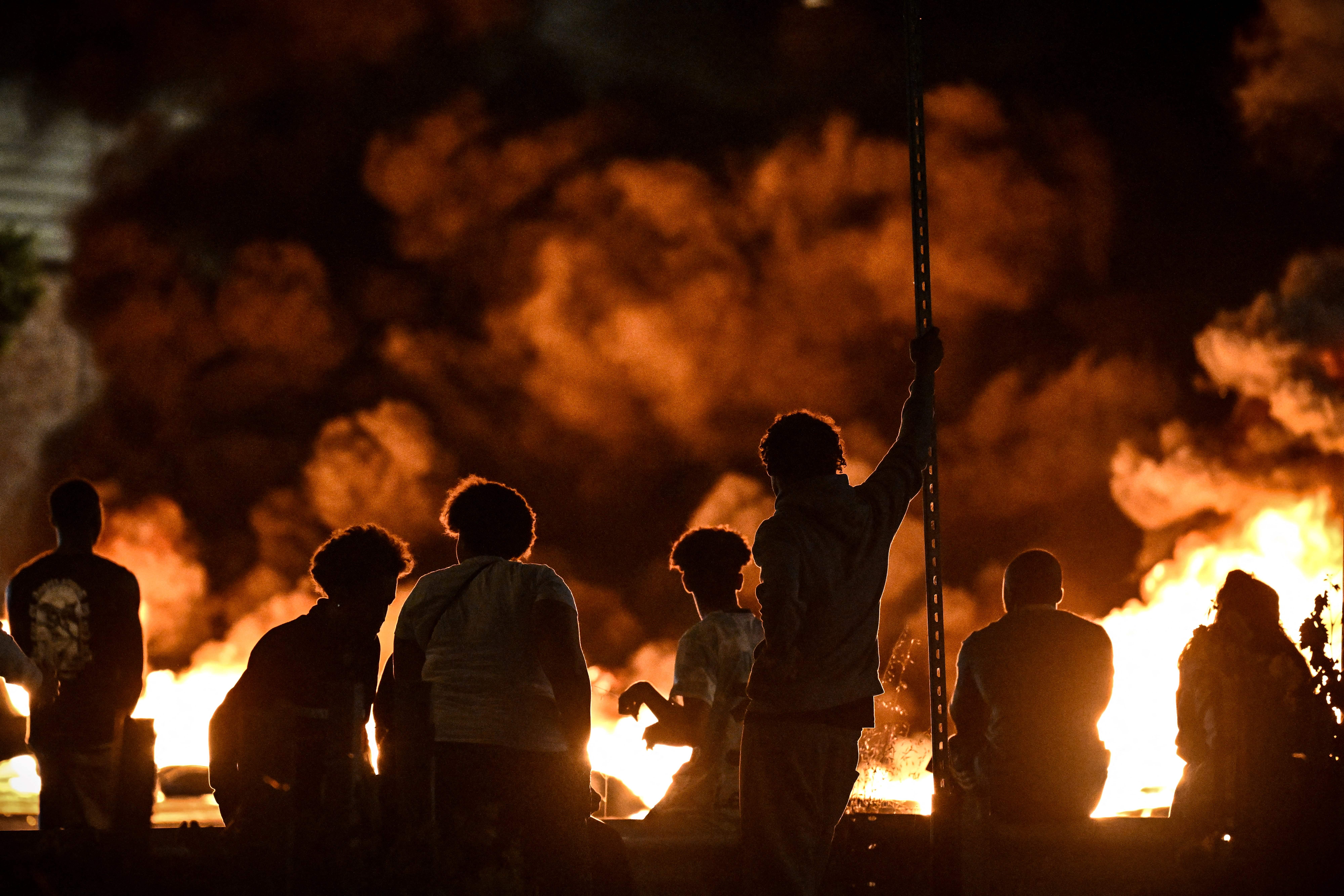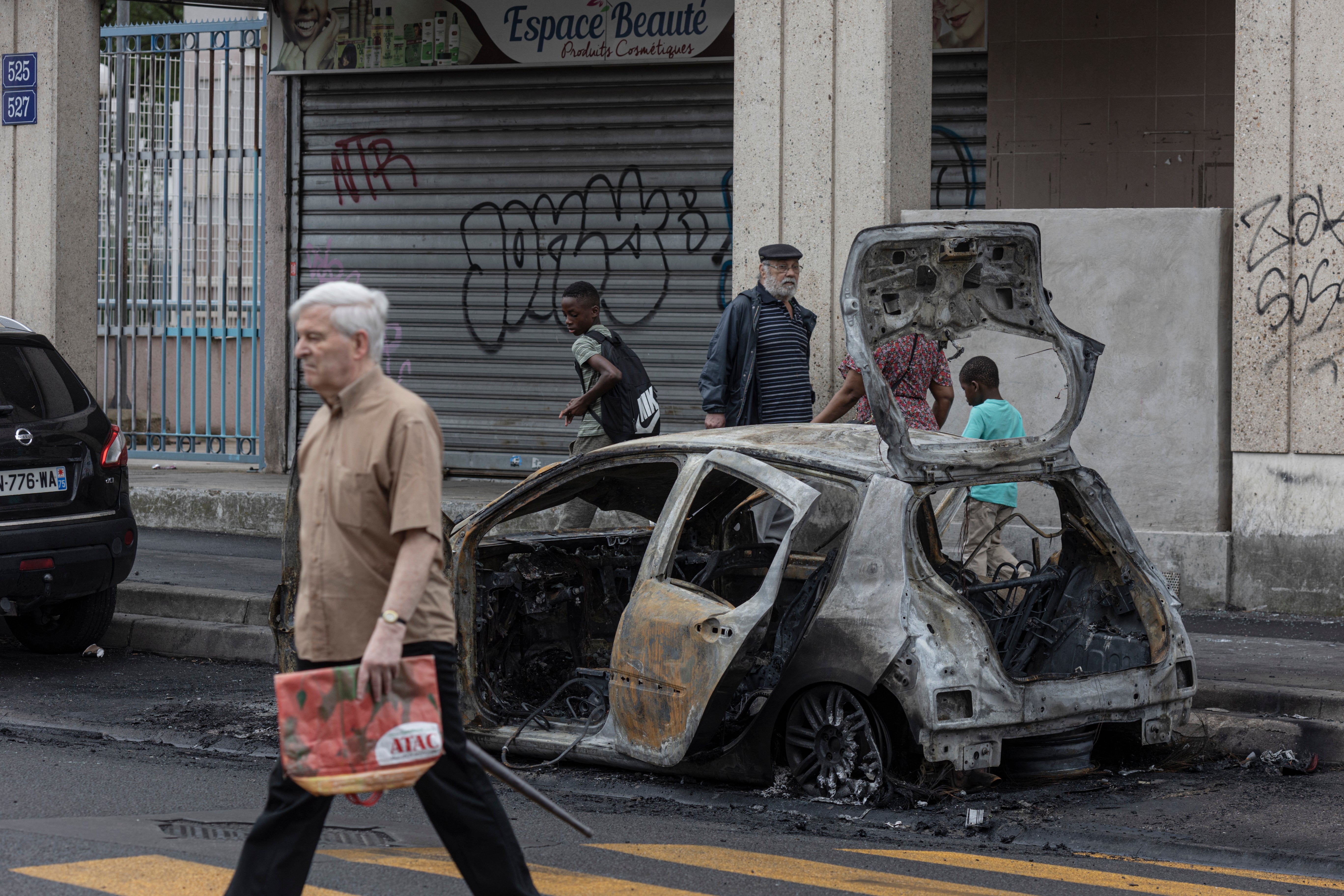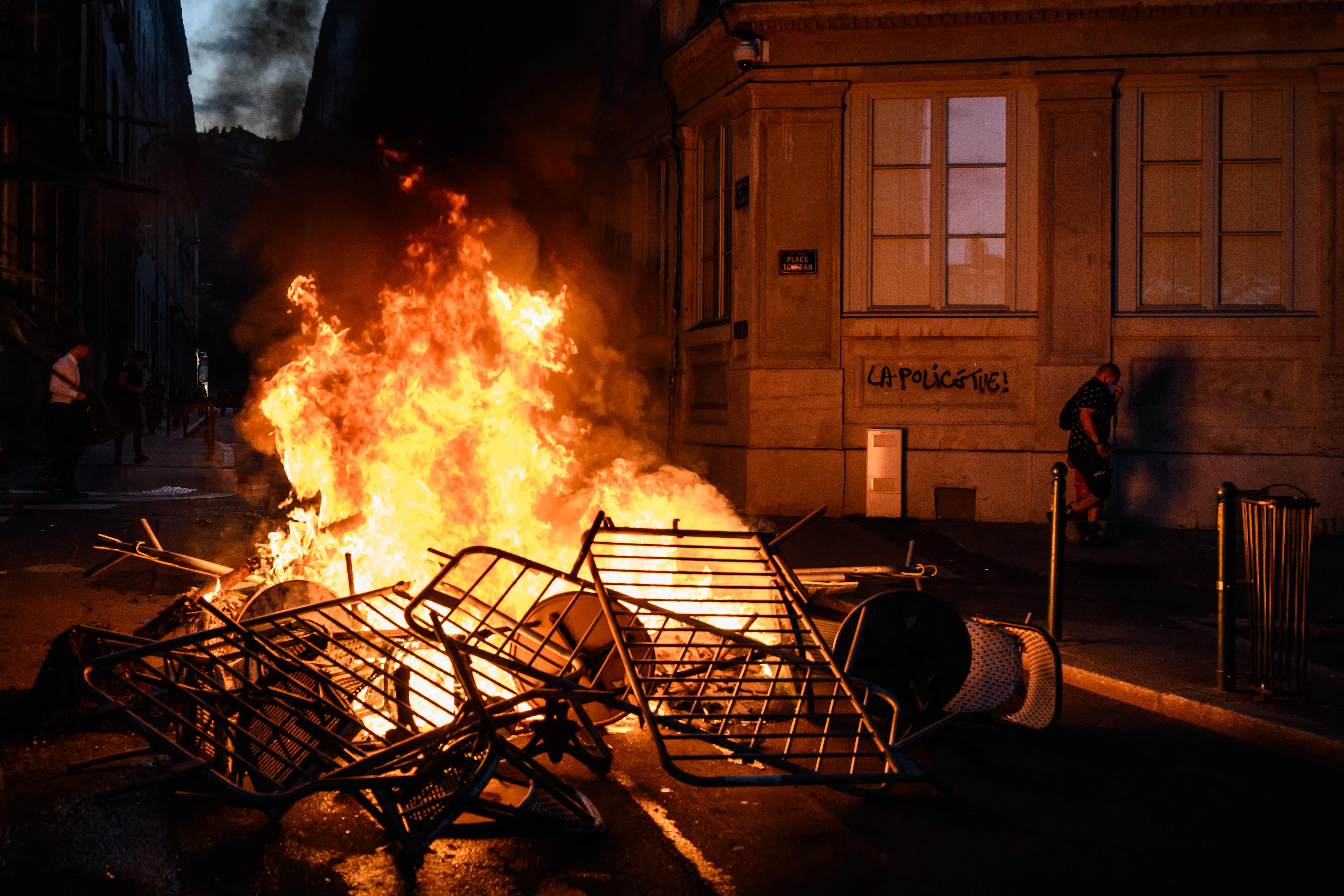France riots: Cities face fifth night of violence despite police reinforcements
France has seen five consecutive nights of rioting across the country following the death of a 17-year-old during a traffic stop
Your support helps us to tell the story
From reproductive rights to climate change to Big Tech, The Independent is on the ground when the story is developing. Whether it's investigating the financials of Elon Musk's pro-Trump PAC or producing our latest documentary, 'The A Word', which shines a light on the American women fighting for reproductive rights, we know how important it is to parse out the facts from the messaging.
At such a critical moment in US history, we need reporters on the ground. Your donation allows us to keep sending journalists to speak to both sides of the story.
The Independent is trusted by Americans across the entire political spectrum. And unlike many other quality news outlets, we choose not to lock Americans out of our reporting and analysis with paywalls. We believe quality journalism should be available to everyone, paid for by those who can afford it.
Your support makes all the difference.France faced its fifth night of rioting on Saturday night, with police reinforcements sent into cities in a bid to control the unrest that has torn through the country since a 17-year-old was shot dead by police in Paris.
Emmanuel Macron announced that he was cancelling his state visit to Germany after more than 1,300 arrests were made on Friday night in cities including the capital, Marseille, Lyon and Toulouse, almost a third of them under the age of 18.
More than 200 police officers were injured, according to interior minister Gerald Darmanin.
In Nanterre, thousands came out for the funeral of Nahel Merzouk who died in the Paris suburb on Tuesday night.

Outside the Ibn Badis Mosque, Therese, 60, a friend of the family who lives next door to Nahel’s grandmother, paid tribute to the “kind and smiley” teenager and said the community was in complete shock.
She added: “He helped me with my groceries. When he was younger I would give him pocket money. I’m shaken, we all are - especially as a mother with children living in this neighbourhood – we’re scared and extremely sad.”
Nahel’s mother told a crowd of women at her son’s funeral: “It’s finished. Now he is in heaven.”

In response to the teenager’s death, looters have ransacked dozens of shops and torched 2,000 vehicles since the start of the riots, which have spread to cities such as Marseille, Lyon, Toulouse, Strasbourg and Lille.
At least 45,000 police have been deployed in attempts to quell the unrest and reinforcements were sent out on Saturday night. Specialist tactical police have been sent to the southern city of Marseille, where rioters looted a gun store and stole hunting rifles, but no ammunition, according to the police.
Protesters clashed with police in Marseille, with photos showing people running from tear gas and garbage bins on fire. Over 50 people were reportedly arrested in Marseille, which experienced the worst of the rioting on Saturday night. 80 people are also arrested in Paris, French broadcaster BFMTV reported, with police officers lining up along the Champs Elysees.
Reinforcements have also been sent to Lyon after officials requested further help. Public transport was stopped after 1900 in Marseille and 2000 in Lyon in an attempt to limit the violence.
Dozens of people were arrested in Lyon on Saturday night for carrying mortars, weapons and other offences, according to local media. Tensions were also reported in Nice, with restaurants forced to close amid clashes.

Mr Macron was forced to reschedule what would have been the first state visit by a French president to Germany in 23 years. The French leader’s office said he had spoken with German president Frank-Walter Steinmeier and told him “given the internal security situation, the president said he wishes to stay in France over the coming days”.
Mr Macron has held off on declaring a state of emergency, an option last used in 2005.
British holidaymakers have been warned by the Foreign Office about travelling to France and star French footballer Kylian Mbappé has appealed for calm.
In a statement issued on social media, together with teammates of the French national football team, the striker said: “As many of us come from working-class neighbourhoods, we also share these feelings of pain and sadness. But this suffering is compounded by the helplessness of witnessing a process of self-destruction. Violence solves nothing.”
The mayor of Nanterre, Patrick Jarry, has said that the death means authorities must “reflect on the police’s terms of engagement”.
The 17-year-old of Algerian and Moroccan descent was shot by police during a traffic stop on Tuesday.
The 38-year-old officer involved in the shooting has been charged with voluntary homicide and placed in provisional detention. He has said that he fired the fatal shot because he feared that someone could be hit by the car.
The unrest has revived memories of nationwide riots in 2005 that forced then-president Jacques Chirac to declare a state of emergency after the death of two young men electrocuted in a power substation as they hid from police.
Mr Macron has denied there is systemic racism in French law enforcement agencies but people of the North African French community have expressed their anger.
“If you have the wrong skin colour, the police are much more dangerous to you,” said a friend of Nahel who attended his funeral but declined to be named.
Nahel was laid to rest on Saturday with Abdelmadjid Benamara, the family lawyer, saying: “Saturday, July 1 is a day of meditation for Nahel’s family.”
Additional reporting by agencies.






Join our commenting forum
Join thought-provoking conversations, follow other Independent readers and see their replies
Comments